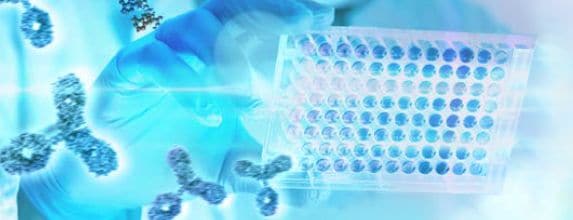Search Thermo Fisher Scientific
Aldosterone ELISA Kits
ELISA kits are commonly used to measure soluble biomarkers across a variety of research areas. ELISA kits for Aldosterone can be quantified in various samples, including fecal extract, plasma, serum, supernatant, urine.
Invitrogen ELISA kits exist in two formats: Uncoated and... ELISA kits are commonly used to measure soluble biomarkers across a variety of research areas. ELISA kits for Aldosterone can be quantified in various samples, including fecal extract, plasma, serum, supernatant, urine.
Invitrogen ELISA kits exist in two formats: Uncoated and Coated.... ELISA kits are commonly used to measure soluble biomarkers across a variety of research areas. ELISA kits for Aldosterone can be quantified in various samples, including fecal extract, plasma, serum, supernatant, urine.
Invitrogen ELISA kits exist in two formats: Uncoated and Coated. Uncoated ELISA kits include all the necessary reagents to coat your own plates and run your assay with maximum flexibility. Coated ELISA kits...
Invitrogen ELISA kits exist in two formats: Uncoated and... ELISA kits are commonly used to measure soluble biomarkers across a variety of research areas. ELISA kits for Aldosterone can be quantified in various samples, including fecal extract, plasma, serum, supernatant, urine.
Invitrogen ELISA kits exist in two formats: Uncoated and Coated.... ELISA kits are commonly used to measure soluble biomarkers across a variety of research areas. ELISA kits for Aldosterone can be quantified in various samples, including fecal extract, plasma, serum, supernatant, urine.
Invitrogen ELISA kits exist in two formats: Uncoated and Coated. Uncoated ELISA kits include all the necessary reagents to coat your own plates and run your assay with maximum flexibility. Coated ELISA kits...
1 篇参考文献
灵敏度 4.97 pg/mL
测定范围 3.906-4000 pg/mL
样品容量
Fecal Extract
100 µL
Plasma
100 µL
Serum
100 µL
总时间
16 hr 45 min
(1 hr 20 min hands-on)
价格(元)
7,435.00
货号 EIAALD
96 Tests
- 96 Tests
- 10 x 96 Tests
查看 1 个结果中的 1 个结果





